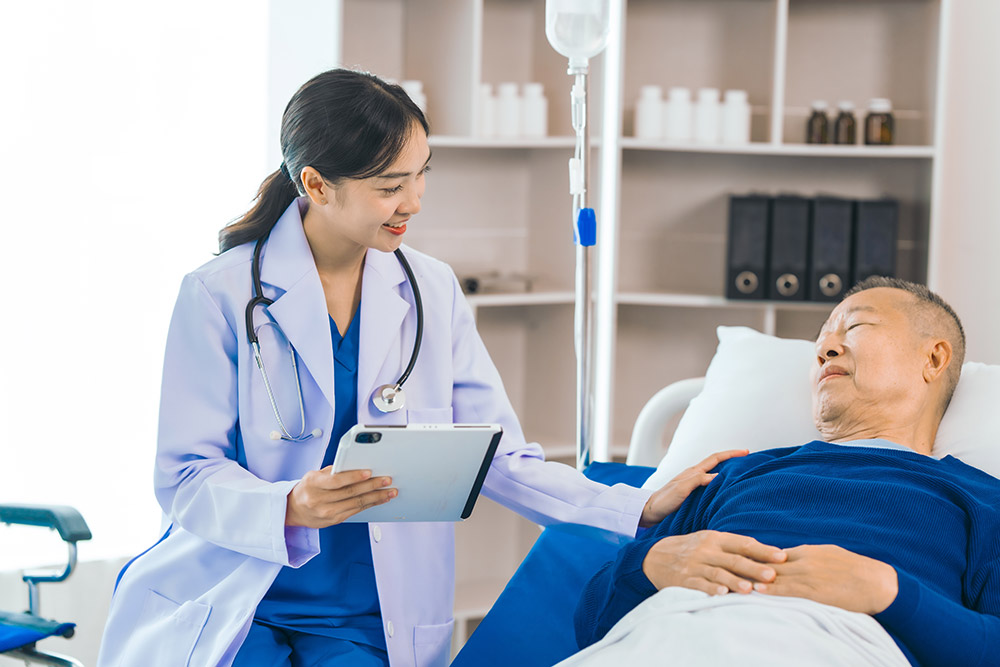What Is Gastric Lymphoma?
Gastric lymphoma is a rare type of cancer that begins in the lymphatic tissue of the stomach. It arises from white blood cells called lymphocytes rather than the stomach lining. Some forms grow slowly, while others progress more quickly. In medical coding, it often appears under ICD-10 C85.0. Early diagnosis and treatment can significantly improve outcomes.
Common Causes and Risk Factors
- Chronic Helicobacter pylori infection
- Weakened immune system (from illness or certain medications)
- Autoimmune disorders such as celiac disease
- Age over 60 years
- Family history of lymphoma or stomach cancer
Signs and Symptoms
- Pain or discomfort in the upper abdomen
- Nausea and vomiting
- Unexplained weight loss
- Poor or decreased appetite
- Bleeding in the stomach, which may cause dark or black stools
Expert Treatment for Gastric Lymphoma by Dr. Bharat Pothuri
Step 1: Health History and Physical Exam
Dr. Pothuri begins by asking about your health and symptoms. He performs a physical exam and checks your abdominal area for any tenderness or abnormalities.
Step 2: Endoscopy with Biopsy
He may recommend an upper endoscopy, where a thin, flexible tube is used to look at your stomach lining. A small tissue sample (biopsy) may be taken during this procedure for testing.
Step 3: Imaging Tests
CT or PET scans may be used to check if the disease has spread to other parts of the body.
Step 4: Clear Communication
Dr. Pothuri explains each step of the diagnostic process so you know what to expect and feel supported throughout your care.
Frequently Asked Questions
What is the survival rate for gastric lymphoma?
Survival varies by stage and subtype. Many patients diagnosed early achieve a five-year survival rate of 70-90% with appropriate treatment.
Can H. pylori cause gastric lymphoma?
Yes. A chronic H. pylori infection is a known risk factor. Eradicating the bacteria with antibiotics can sometimes halt or reverse early disease.
How soon will I know my biopsy results?
Pathology reports typically return within 5-7 business days. Dr. Pothuri will review the findings with you as soon as they're available.
Is surgery always required for treatment?
No. Some patients respond completely to antibiotics, immunotherapy, or targeted drugs. Surgery is reserved for select cases or complications.
What ICD-10 code is used for gastric lymphoma?
Most cases are coded as C85.0 (mucosa-associated lymphoid tissue lymphoma, extranodal). Your specific code may vary based on pathology.
How quickly can I start treatment?
Once your diagnosis is confirmed and insurance is approved, treatment often begins within one to two weeks. Urgency depends on your individual case.
Do you provide follow-up care after treatment?
Yes. Our Houston clinic offers regular checkups, imaging, and lab work to monitor remission and manage any long-term effects.












